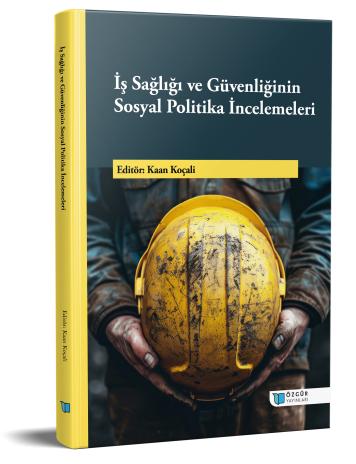
An Evaluation of Platform Workers within the Scope of Occupational Health and Safety
Chapter from the book:
Koçali,
K.
(ed.)
2025.
Social Policy Reviews of Occupational Health and Safety.
Synopsis
This study examines platform work, one of the emerging forms of employment driven by digitalization, within the context of legal regulations and occupational health and safety. Platform work refers to a new employment model based on short-term, task-oriented jobs conducted through digital applications or web-based platforms. With the rise of the gig economy, this model has become increasingly prevalent, challenging the traditional employment relationship defined by the elements of “work performance,” “remuneration,” and “subordination.” As a result, it generates significant ambiguities in determining the legal status of workers and in their access to social protection rights.
From the perspective of Turkish labor legislation, most platform workers are categorized as “independent contractors” or “self-employed,” and therefore remain excluded from the protections provided by the Labor Law No. 4857 and the Social Insurance and General Health Insurance Law No. 5510. This exclusion creates structural gaps in the integration of such workers into the social security system and their entitlement to basic labor rights such as job security.
In terms of occupational health and safety, although the Occupational Health and Safety Law No. 6331 theoretically applies to all workplaces and workers regardless of the sector, platform workers are often not covered in practice due to their classification as employers or independent actors. While judicial decisions in countries such as France, the United Kingdom, the United States, and Switzerland have increasingly recognized the existence of employment relationships in platform work—particularly in cases involving Uber—Turkish courts have ruled otherwise, citing the lack of sufficient subordination. Consequently, platform workers face significant precariousness due to both their unclear legal status and the lack of occupational health and safety protections.

